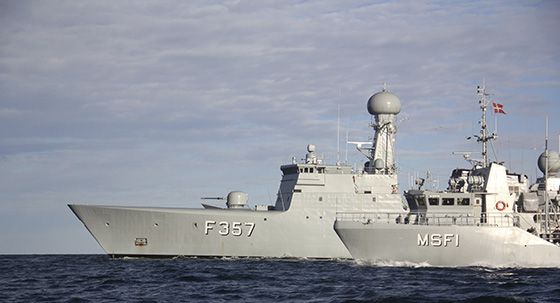The Danish Navy has assumed command of NATO’s mine-sweeping forces in the Baltic Sea and the eastern Atlantic Ocean for 2019.
The command, Standing NATO Mine Countermeasures Group number 1, consists of around six vessels and is tasked with keeping shipping lanes free of old mines. Around 20 ships from various countries will intermittently take part in the operation over the course of the year.
“We use underwater sonar to locate the mines and subsequently remove or destroy them using our submersible robots or divers,” said Peter Krogh, Denmark’s naval commander and head of the NATO mine-sweeping force for the year.
“And if that can’t be done, we implement mine sweepers – which tow equipment that simulates a real ship in order to detonate the mine from a safe distance.”
READ MORE: NATO investing in Bornholm radar upgrade
Remnants of World Wars
There are tens of thousands of naval mines in the oceans across the globe, of which many stem from WWI and WWII.
In the Baltic Sea alone, around 180,000 mines were laid between 1848 and 1945, and of these only around 50,000 have been removed.
Meanwhile, the US has taken over from Denmark in commanding NATO’s northern fleet, Standing NATO Maritime Group (SNMG). The Danes led the group in 2018.















